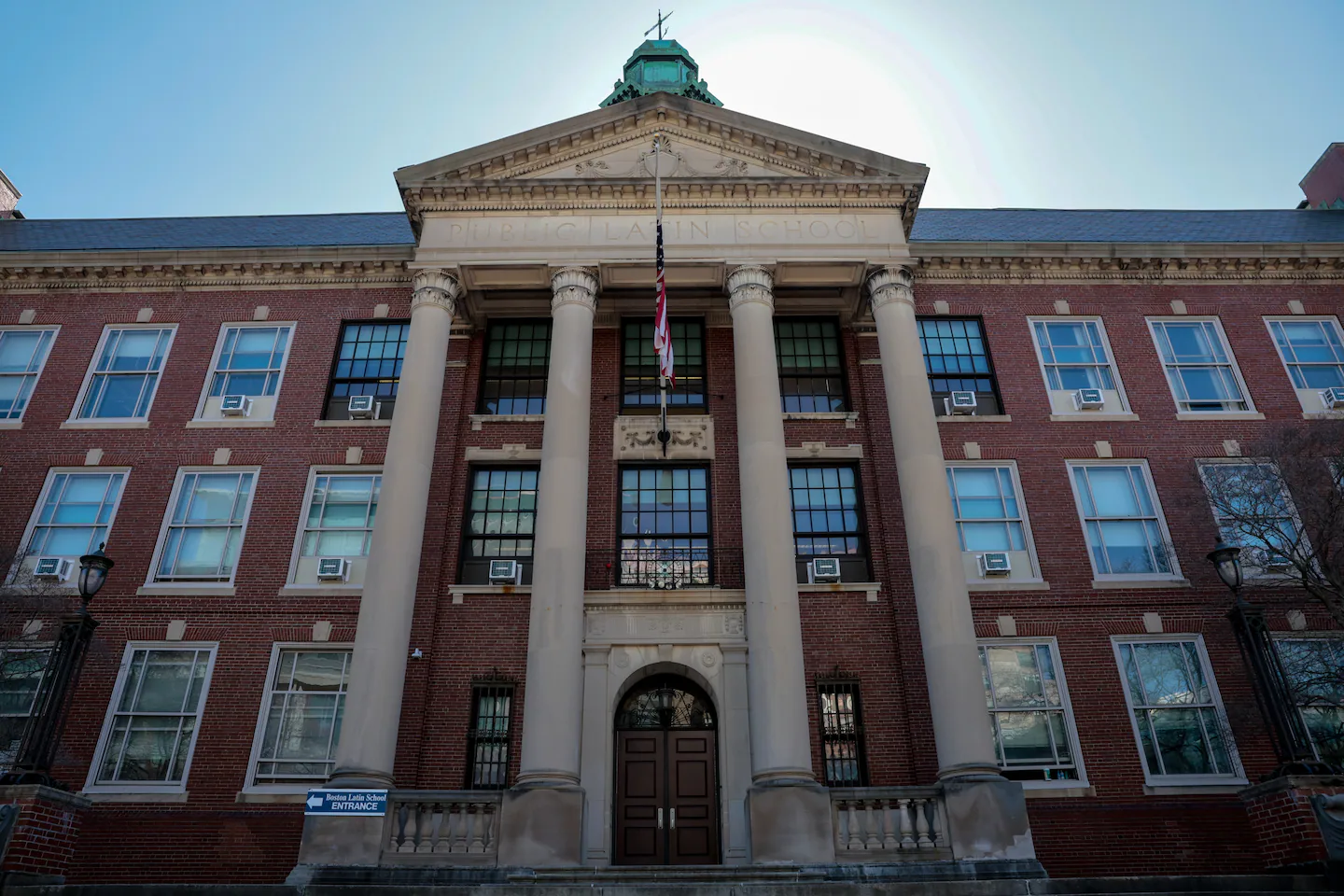
Administrators have said the proposed changes would result in marginally more seats going to white and non-low-income students. The proposals could result in the most significant change to the exam schools’ admissions policy in 5 years.
No vote is scheduled tonight on the admission policy recommendations, according to the meeting agenda. If any changes are approved by the School Committee, would affect Boston Latin School, Boston Latin Academy, and the John D. O’Bryant School of Math and Science. No vote was scheduled for tonight’s meeting that starts at 6 p.m. at BPS headquarters in Roxbury.
Before the pandemic, the city’s exam school application process was based only on a student’s grades and an entrance exam score, but that process was criticized for failing to draw in a diverse applicant pool for the exam schools. The School Committee in July 2021 approved a complex system that was intended to improve the odds of students from disadvantaged backgrounds to enroll in those buildings.
The goal, proponents said at the time, was to help prevent disadvantaged students from competing with applicants whose families had the means to pay for tutors and educational consultants.
State data shows increases in the proportion of Black, Latino, and multi-race students enrolled in the city’s three exam schools from the 2021 to 2022 school year compared with the past year.
The system approved in 2021 divided up applicants into socioeconomic tiers that grouped students based on factors like poverty level, households with single parents, educational attainment of adults, and households where English was not the primary language. Students would still be judged on an entrance exam score, but it carries less weight under the updated policy.
Students would receive up to 100 points in a composite score based on academic grades and the entrance exam. Applicants could also receive 10 additional points for attending a high-poverty school. Alternatively, students living in some public housing, who are homeless, or in the care of the state’s Department of Children and Families could receive up to 15 additional points.
In January 2024, the policy was tweaked by the School Committee so the number of school-based points was determined by where an applicant lived in the city, regardless of whether they lived in a low-income household.
The change was made so students from affluent areas wouldn’t need perfect or near-perfect scores to enter their first choice exam school, Superintendent Mary Skipper said at the time.
But critics of the current policy argue it makes it harder for more affluent students to attend the city’s exam schools. A federal lawsuit filed in July alleges the policy discriminates against white children. The suit was filed by the Boston Parent Coalition for Academic Excellence, which sued the district in 2020 over a temporarily discontinued policy that awarded seats based on grades and zip code. The Supreme Court declined to hear the case last year, as one justice said the policy was no longer in use.
During a School Committee meeting Sept. 10,member Stephen Alkins was among the committee members who questioned how the potential changes would impact the exam schools’ enrollment.
“Each [enrollment] simulation we’re looking at gets away [from] generating a student body that better reflects the demographics of the city,” Alkins said. The intent of the current policy was to give more schools, and their students, the opportunity to be part of the exam school community in the city, he said.
During the same meeting, School Committee member Rachel Skerritt,who served on the 2021 panel that developed the current admissions policy, including its point system, also raised concerns about the proposed changes.
“A key driver and original intention of the points was to really speak to those schools [that] traditionally did not send students in any high number to the exam schools rarely, or if ever,” Skerritt said.
During public comment, Rosann Tung,another member of the 2021 task force, urged School Committee members to keep the current policy in place. The proposed changes would create a decline in lower-income students at exam schools, she argued.
“I agree with the critics that all applicants should have a shot at an exam school seat,” Tung said. “However, the solution should not backslide on equity gains.”
Deirdre Manning,a Dorchester parent, said the current policy shortcomings include penalizing lower-income families who happen to live in more affluent areas.
“There have been students who have been doubly penalized because they live in a better-off neighborhood, even with a Section 8 voucher, and they are deprived of these so-called extra points,” Manning said.
Christopher Huffaker of the Globe staff contributed to this report.



